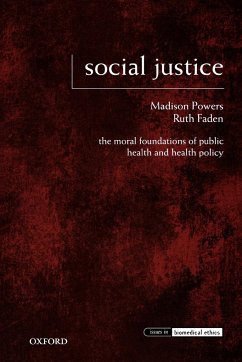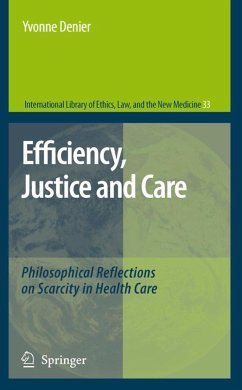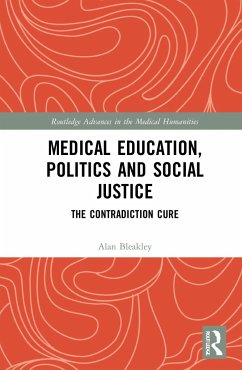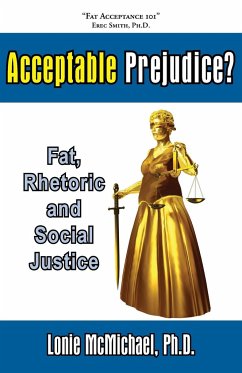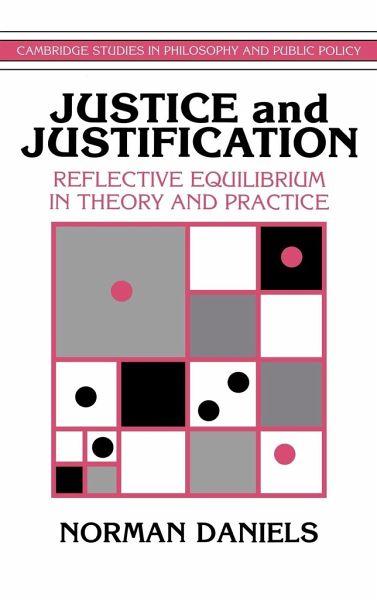
Justice and Justification

PAYBACK Punkte
54 °P sammeln!
We all have beliefs, even strong convictions, about what is just and fair in our social arrangements. How should these beliefs and the theories of justice that incorporate them guide our thinking about practical matters of justice? This wide-ranging collection of essays by one of the foremost medical ethicists in the USA explores the claim that justification in ethics, whether of matters of theory or practice, involves achieving coherence between our moral and non-moral beliefs. Amongst the practical issues addressed in the volume are the design of health-care institutions, the distribution of...
We all have beliefs, even strong convictions, about what is just and fair in our social arrangements. How should these beliefs and the theories of justice that incorporate them guide our thinking about practical matters of justice? This wide-ranging collection of essays by one of the foremost medical ethicists in the USA explores the claim that justification in ethics, whether of matters of theory or practice, involves achieving coherence between our moral and non-moral beliefs. Amongst the practical issues addressed in the volume are the design of health-care institutions, the distribution of goods between the old and the young, and fairness in hiring and firing. In combining ethical theory and practical ethics this volume will prove especially valuable to philosophers concerned with ethics and applied ethics, political theorists, bioethicists, and others involved in the study of public policy.
Table of contents:
1. Introduction: reflective equilibrium in theory and practice; 2. Wide reflective equilibrium and theory acceptance in ethics; 3. Reflective equilibrium and archimedian points; 4. On some methods of ethics and linguistics; 5. Two approaches to theory acceptance in ethics; 6. An argument about the relativity of justice; 7. Moral theory and the plasticity of persons; 8. Reflective equilibrium and justice as political; 9. Health-care needs and distributive justice; 10. Equality of what: welfare, resources, or capabilities?; 11. Determining 'medical necessity' in mental health practice; 12. The prudential lifespan account of justice across generations; 13. Problems with prudence; 14. Merit and meritocracy; 15. Rationing fairly: programmatic considerations; 16. Wide reflective equilibrium in practice.
This wide-ranging collection of essays by one of the foremost medical ethicists in the USA explores the claim that justification in ethics, whether of matters of theory or practice, involves achieving coherence between our moral and non-moral beliefs.
A collection of essays exploring ethics and their relation to moral and non-moral beliefs.
Table of contents:
1. Introduction: reflective equilibrium in theory and practice; 2. Wide reflective equilibrium and theory acceptance in ethics; 3. Reflective equilibrium and archimedian points; 4. On some methods of ethics and linguistics; 5. Two approaches to theory acceptance in ethics; 6. An argument about the relativity of justice; 7. Moral theory and the plasticity of persons; 8. Reflective equilibrium and justice as political; 9. Health-care needs and distributive justice; 10. Equality of what: welfare, resources, or capabilities?; 11. Determining 'medical necessity' in mental health practice; 12. The prudential lifespan account of justice across generations; 13. Problems with prudence; 14. Merit and meritocracy; 15. Rationing fairly: programmatic considerations; 16. Wide reflective equilibrium in practice.
This wide-ranging collection of essays by one of the foremost medical ethicists in the USA explores the claim that justification in ethics, whether of matters of theory or practice, involves achieving coherence between our moral and non-moral beliefs.
A collection of essays exploring ethics and their relation to moral and non-moral beliefs.






